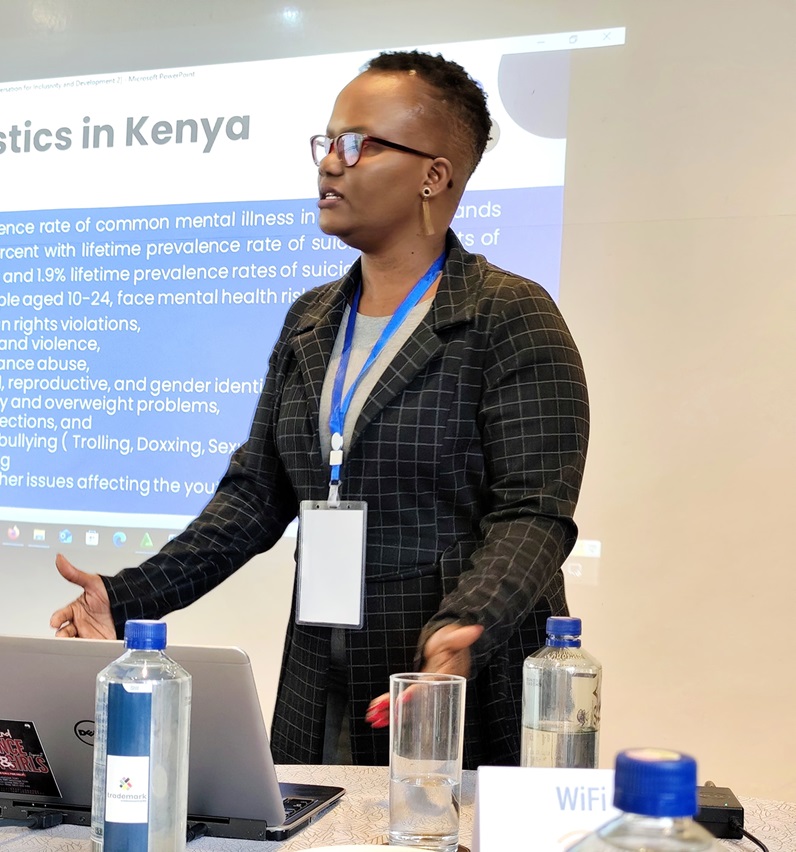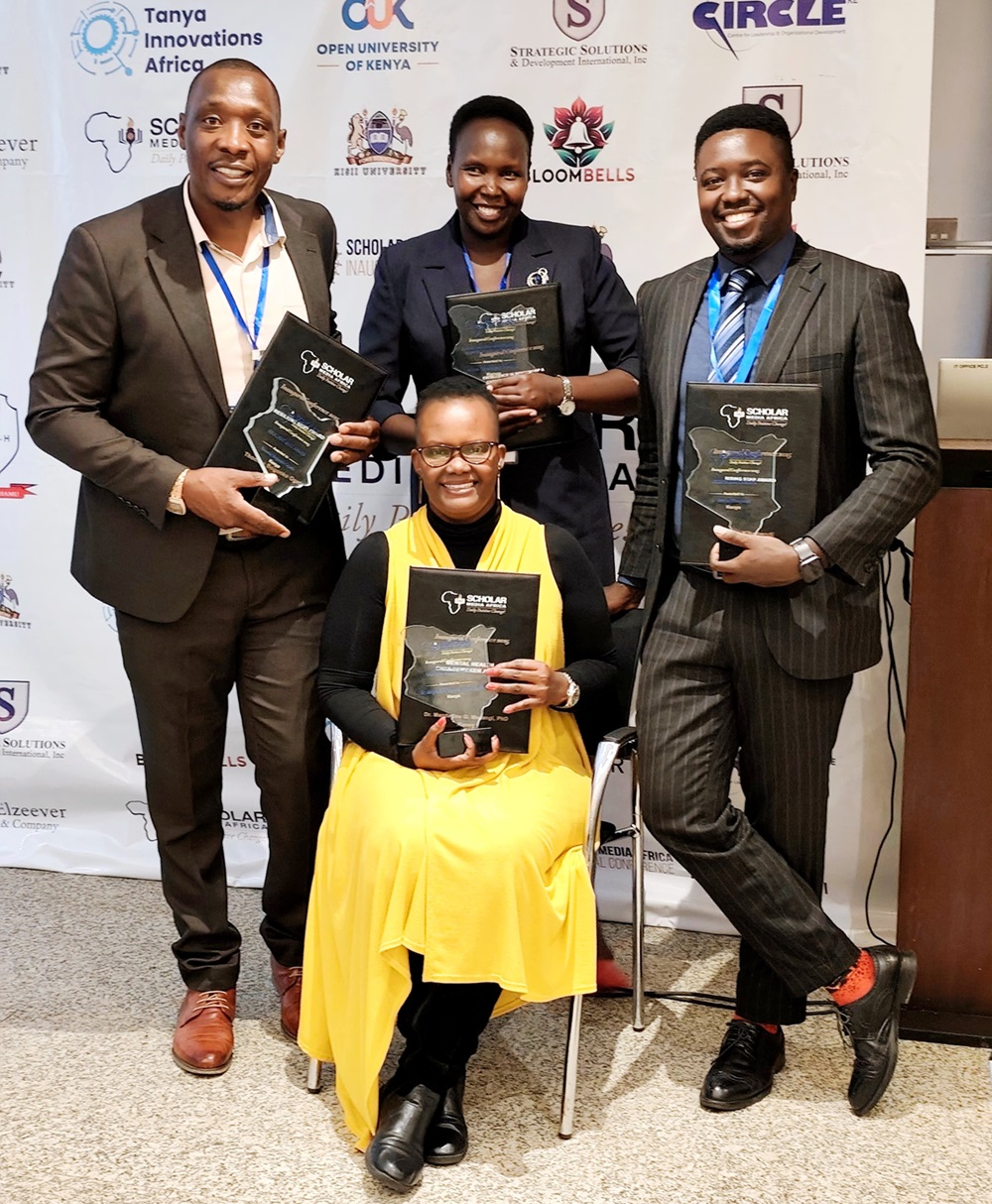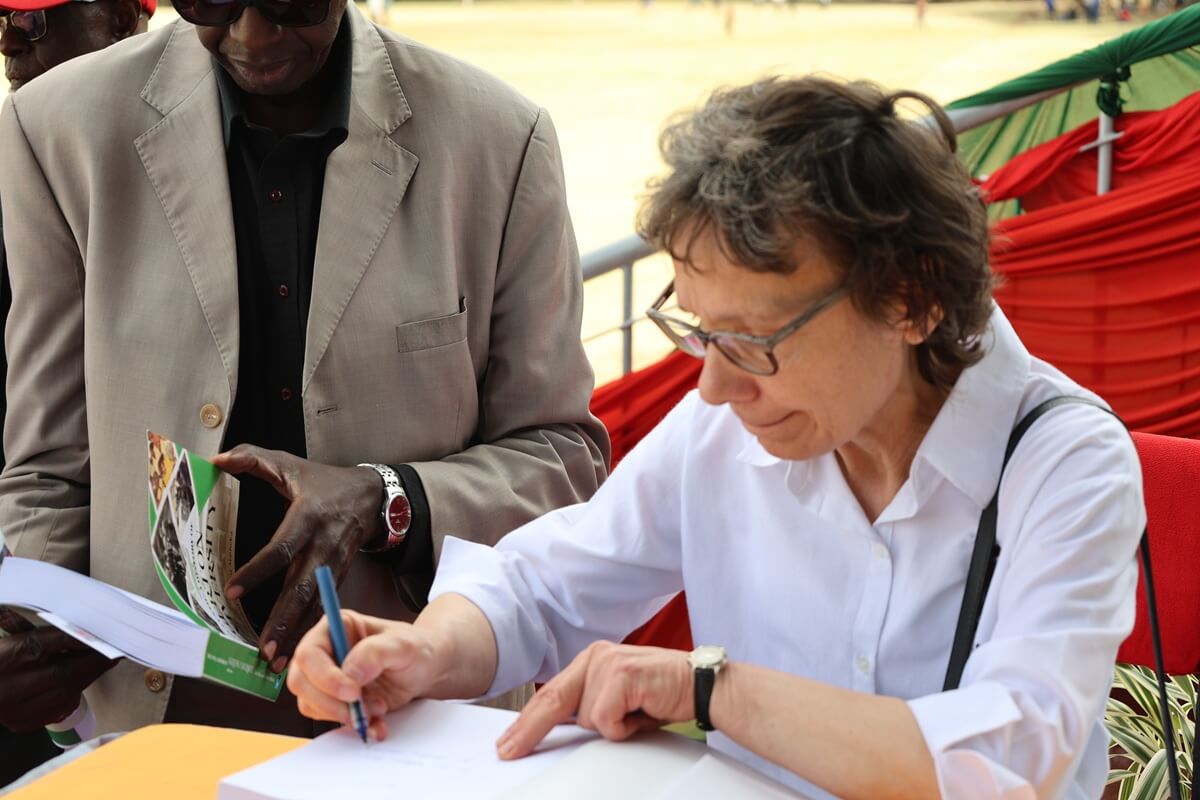Egerton University shone on the continental stage during the inaugural Scholar Media Africa (SMA) Conference held from April 23 to 25, 2025.
The prestigious event brought together thought leaders, scholars, innovators, and changemakers from across Africa and beyond to engage in transformative dialogue, celebrate excellence, and inspire actionable solutions for sustainable development.
Organized by the Scholar Media Group Africa (SMEGA), the conference focused on key thematic areas including education, innovation, climate action, gender empowerment, mental health, and sustainable development. The platform aimed to amplify Africa’s success stories while nurturing future generations through solution-based conversations.

Egerton University, through the Institute of Gender and Development Studies, was proudly represented by Dr. Magdaline Gesare Magangi. Not only did she serve as a keynote speaker, but she was also recognized with the Mental Health Changemaker Award during the gala dinner that concluded the event.
Dr. Gesare’s powerful presentation, titled “Engendering the Mental Health Conversation for Inclusivity and Development,” underscored the urgent need for governments and institutions to prioritise mental health, particularly among youth aged 10 to 24. She advocated for the formulation of inclusive policies and programs that address the unique mental health challenges faced by this demographic.
With a gendered lens, Dr. Gesare delved into pressing issues such as depression and suicide among youth.
She highlighted that young people increasingly suffer from mental health challenges due to factors such as human rights violations, violence, substance abuse, cyberbullying, including trolling, doxxing, sexual harassment—gambling, and struggles with gender identity and sexuality.
Her findings revealed that while depression was more prevalent among women, suicide rates were disproportionately higher among men. Alarmingly, one in 25 suicide attempts results in death, making suicide the fourth leading cause of death among individuals aged 15 to 29. 

Girls, she noted, are more likely to experience suicidal ideation and self-harm, with 11-year-old girls 30% more likely to face poor mental health than boys, and 18-year-olds 50% more likely.
“Failing to address adolescent mental health risks impairs both physical and psychological development, limiting young people’s ability to lead fulfilling lives into adulthood,” Dr. Gesare warned.
She urged institutions to strengthen professional counseling services to support youth.
Drawing attention to Kenya’s demographic landscape, she emphasized that young people aged 18 to 35 comprise the majority of those affected by common mental disorders.
“Youth account for nearly 75% of Kenya’s population; that’s close to three million people. We must redirect our focus to safeguard their mental well-being,” she stated.
Dr. Gesare also noted global concerns, pointing out that male suicide rates have doubled compared to those of women since 2021.
To address such disparities, she called for gender-inclusive policies, equal rights advocacy, and institutional reforms that integrate gender perspectives.
At a personal level, she encouraged individuals to foster mental wellness through what she called the Wheel of Mental Wellness—setting realistic goals, exercising, managing emotions, problem-solving, and maintaining healthy sleep habits.
The conference culminated in a gala dinner that celebrated distinguished individuals championing change across Africa. Egerton University expressed pride in Dr. Gesare’s recognition, lauding her for raising the institution’s flag high on matters of social justice and mental health advocacy.








